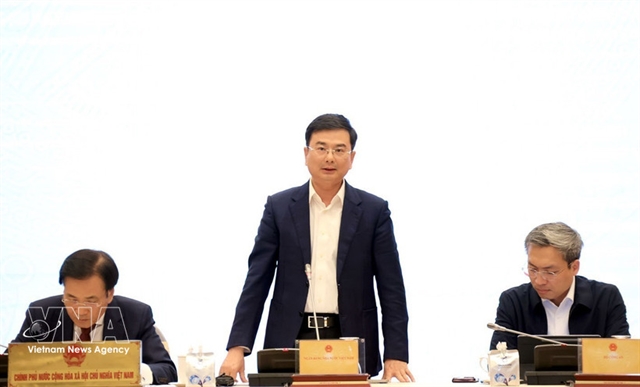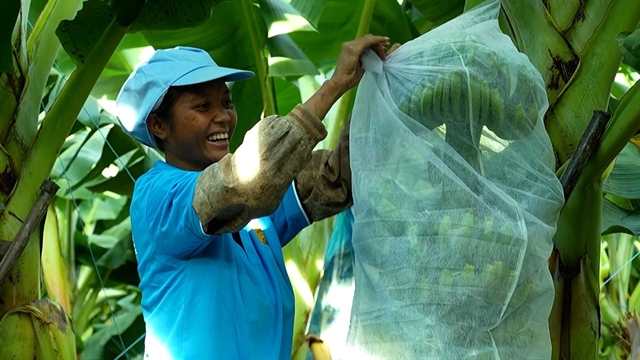 Society
Society
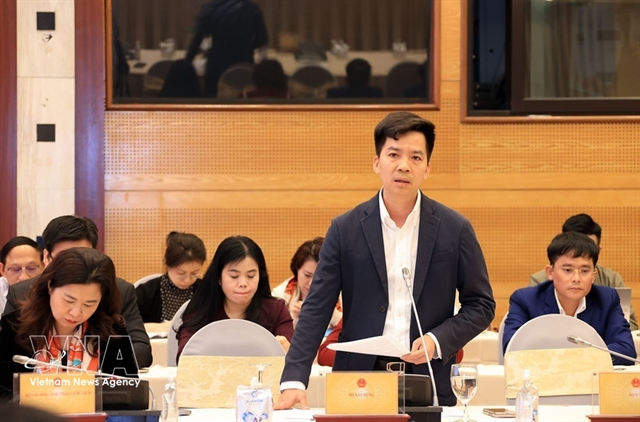
Lying on the bed of the Military Hospital 103 in Hà Nội with jaundiced skin, Nguyễn Thị Diệp, 25 years old, is waiting for her second liver transplant.
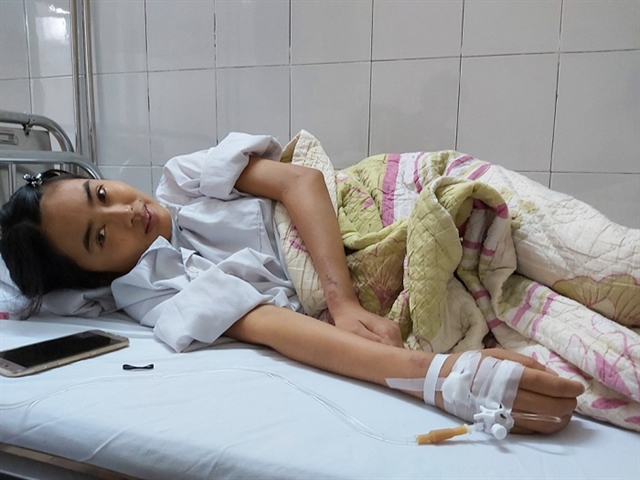
|
| Nguyễn Thị Diệp is treated at the Military Hospital 103, waiting for the second liver transplant. — Photo baogiaothong.vn |
HÀ NỘI — Lying on the bed of the Military Hospital 103 in Hà Nội with jaundiced skin, Nguyễn Thị Diệp, 25 years old, is waiting for her second liver transplant.
“My life completely depends on the coming organ transplant with the exact date unknown,” she said.
The biggest difficulty now is to find the donor and pay for the operation.
Sixteen years ago in 2004, Diệp, then nine years old, was the first person in Việt Nam to receive a liver transplant as she was born with bile atrophy.
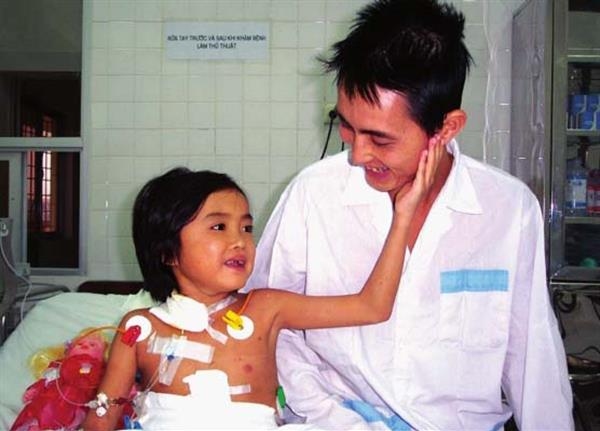
|
| Nguyễn Thị Diệp and her father after the liver transplant in 2004. —Photo courtesy of the patient. |
The transplant was carefully prepared for five years and was conducted by leading experts of the Military Hospital 103. Doctors and nurses of Chợ Rẫy Hospital in HCM City, Huế Central Hospital and the National Paediatrics Hospital were sent to watch the operation to learn experience.
Diệp recovered well after the transplant and studied pharmacy, hoping to be able to take care of herself and others.
After graduation, she was admitted to the Vietnam Military Medical University to work.
Since last year, her health has deteriorated.
“I started to feel tired in the whole body and pooped a lot but did not think my illness had gotten worse.
“Only when my stomach was swollen and I was unable to eat or drink, did I go to see the doctor. My liver's enzyme level has increased and is suffering from cirrhosis. Despite treatment, the symptoms were not relieved.”
Now Diệp needs plasma and protein injections every day and an Albumin infusion once every two days. From 50kg, she is now under 40kg, getting skinnier and paler.
Doctors said Diệp was very weak. The hospital has put her on the list for a liver transplant, Phạm Thị Thoa, Diệp’s mother told Giao Thông (Transport) newspaper.
“She is getting weaker and now can only go to the toilet in the room, she cannot go out by herself,” the mother said.
“My biggest wish is to be able to donate my liver to my daughter.”
But Diệp does not want her mother to make that sacrifice.
“My father donated his liver to me more than 10 years ago. Since then, his health has been weakened. My mother has become the family’s breadwinner. If my mother donates her liver, none of the members in my family will be in a good state of health,” Diệp said.
This time both her mother and father came to Hà Nội to take care of her. Her father planned to rent a small room to stay in but her mother refused because she has to go home to take care of Diệp’s grandmother who is 74 years old and paralysed in their home in northern Nam Định Province.
“I can sleep in the hospital’s lobby so that I am always ready each time the doctors call. The more you can save, the better it is,” Diệp’s mother said.
Associate Professor Bùi Văn Mạnh, director of the Emergency and Poison Control Centre, Military Hospital 103, said the transplanted liver has longevity and Diệp's case was a great success because she has lived nearly 17 years with her father's liver, the longest liver longevity in Việt Nam so far.
However, the liver is a special organ of the body, so when it enters the body, it always tends to push the transplanted organ out of the body. Diệp’s current condition after years of transplant is understandable, according to the doctor.
“The timing of transplant depends on the patient’s state of health,” he said.
The biggest difficulty now is the source of organs and funding to perform the second liver transplant for Diệp. She has two younger brothers and a mother.
A liver from a familiar bloodline would be the best, or it could be transplanted from a brain-dead donor or someone alive donating a portion of the liver, Dr Mạnh said.
Once the donor is found, the cost of the operation will be another burden.
According to the doctor, compared to the first liver transplant, the second transplant will be more complicated because the body produces antibodies to counter the graft. The patient's immune system will struggle and it is more difficult than the first transplant to manage drug usage of the patients and prevent complications.
“But that doesn't mean it's impossible.”
Despite the challenges ahead, Diệp and her parents are still optimistic about the transplant.
Sixteen years ago when the first transplant was about to begin, it was close to the lunar new year.
Diệp and her father encouraged each other: “We just need to go through the surgery, it will not hurt."
Now when the second transplant’s time is unknown, Diệp is still optimistic and encourages her parents to believe in doctors.
Holding her mother's hand, she said: "I must live because I don’t want to stop at the most beautiful age of life.” — VNS

